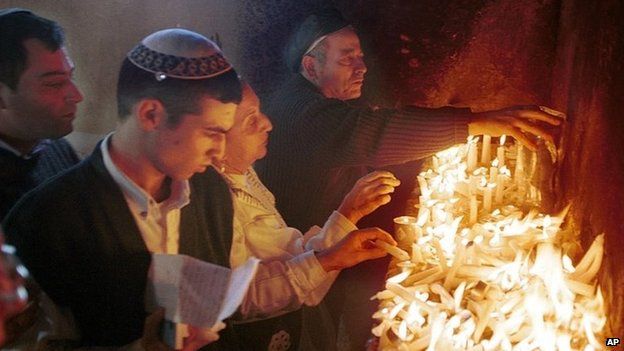Egypt court bans Jewish festival for 'moral offences'
- Published

A court in Egypt has banned an annual Jewish festival held in honour of a 19th Century Moroccan rabbi.
The Alexandria Administrative Court said its decision was due to "moral offences" committed in previous years.
Locals had reportedly complained about the consumption of alcohol and mingling of men and women at the tomb of Yaakov Abuhatzeira in the town of Damanhur.
Jews, mostly from Israel and Morocco, have made pilgrimages there since Egypt's 1979 peace deal with Israel.
However, they were prevented by court orders in 2001 and 2004.
And in 2012 the festival was cancelled by the Egyptian authorities because of security concerns after the uprising that forced President Hosni Mubarak to resign.
Monday's ruling will make the ban permanent unless a higher court overturns it on appeal.
The court also ordered the government to remove the tomb from the national antiquities and monuments list.
Abuhatzeira, also known as Abir Yaakov, was a rabbi and mystic from Morocco who died in Damanhur, some 160km (100 miles) north-west of Cairo in 1880. He was the grandfather of Yisrael Abuhatzeira, the noted kabbalist known as the "Baba Sali".